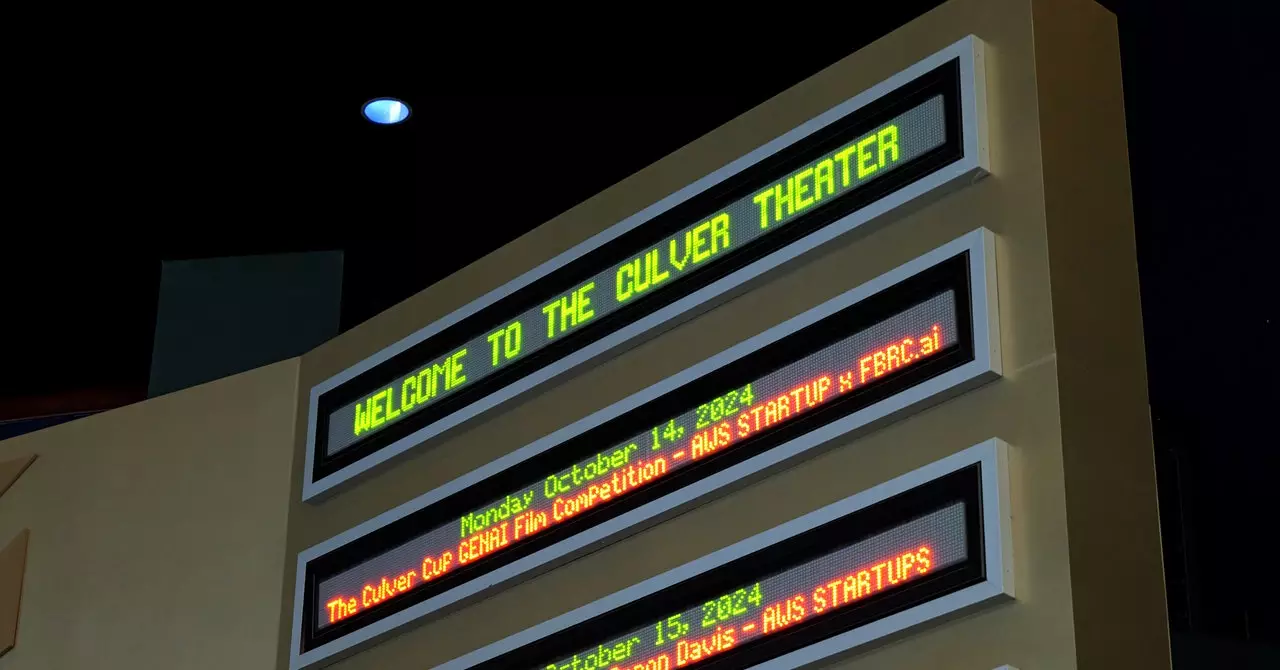The realm of filmmaking, like many forms of art, is fundamentally rooted in storytelling. Despite rapid advancements in technology, the core principles of effective storytelling remain unchanged. Renowned filmmaker Meta Puppet emphasizes this point when he insists on the importance of mastering the fundamentals of narrative construction. As we stand on the precipice of a technological revolution driven by artificial intelligence (AI), it becomes imperative to examine how these new tools can enhance, rather than replace, the timeless art of storytelling.
Puppet’s short film “Mnemonade” offers a compelling case study on the role of emotion in AI-driven narratives. By exploring themes of memory and loss through the lens of an elderly woman’s experience, he creates a poignant commentary on the human condition. Notably, his technique of utilizing AI-generated voice alterations allows him to embody multiple characters, showcasing the potential for AI to augment creative expression. Nevertheless, he warns that the widespread acceptance of AI in filmmaking hinges upon the technology’s ability to foster genuine emotional dialogue—an element he believes is currently lacking in many AI-generated works.
Maddie Hong, a peer of Puppet’s and competitor in the Culver Cup finals, echoes his sentiments regarding the industry’s hesitance to fully embrace AI. The legal and financial implications of incorporating AI into filmmaking are daunting; potential issues surrounding copyright infringement loom large. These concerns highlight the need for a careful navigation of the creative landscape as filmmakers experiment with AI tools.
Amit Jain, cofounder of Luma, champions the potential for generative AI to diversify products and provide flexibility within the traditional studio system. He points to Hollywood’s current tendency to rely on established franchises as a strategic move born out of financial conservatism. The reliance on reboots stifles innovation and creativity within a landscape that desperately seeks fresh narratives. Jain posits that AI can democratize production processes, enabling smaller-scale projects that might better reflect audience interests.
However, an overarching concern exists regarding job security within the entertainment sector. Recent surveys reveal that a significant percentage of industry leaders see generative AI as a catalyst for job consolidation or reduction. While some believe that AI tools could streamline workflows and possibly create new roles, the uncertainty surrounding the net impact on employment remains a critical point of discussion.
While innovative tools can provide exciting opportunities, the onus is on creators to ensure that their work resonates with audiences. Puppet draws an analogy between generative AI and the piano, noting that while anyone can access these tools, mastery is akin to being a musical genius like Mozart. The challenge lies not only in using AI effectively but in cultivating the necessary skills and emotional intelligence to create meaningful narratives.
The integration of AI tools offers a dual-edged sword; creators must strike a balance between leveraging technology for efficiency and maintaining a human touch in their storytelling. The potential exists for a new wave of filmmakers to rise, using AI as a means to explore novel concepts and themes. However, success will inevitably depend on an individual’s capacity to innovate and resonate with audiences on a personal level.
As filmmakers navigate this new terrain, the intersection of AI and storytelling will undoubtedly shape the future of the industry. While there are legitimate concerns surrounding job security and the ethical implications of AI-generated content, the opportunity to create a more diverse and engaging array of stories also exists. Ultimately, the key to success in this evolving landscape lies in harnessing the technology at hand while adhering to the principles of impactful storytelling. Those who are willing to embrace the possibilities offered by AI, while remaining true to the emotional core of their narratives, may find themselves at the forefront of a new era in filmmaking.

